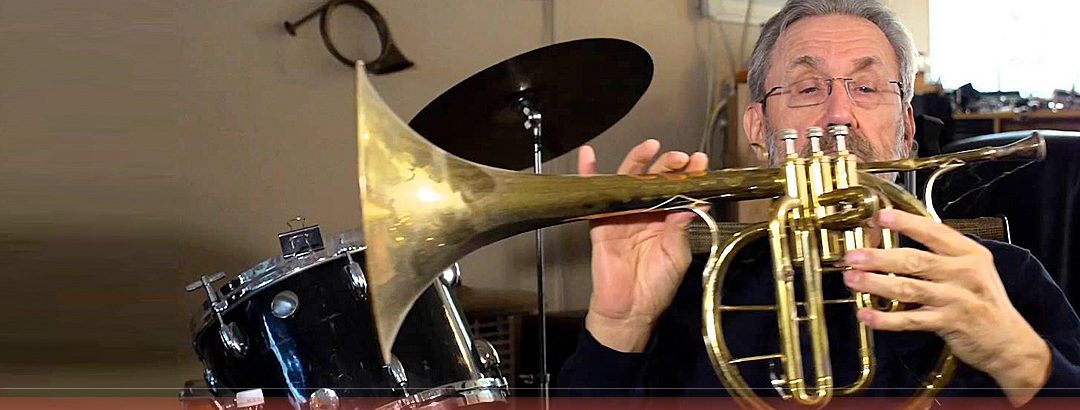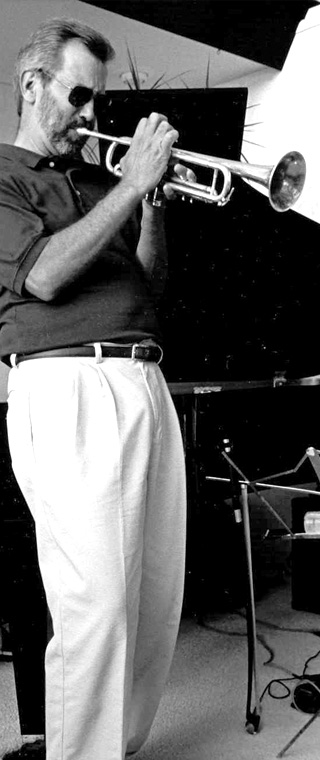
Carl Saunders
Jazz Trumpeter, Recording Artist, Composer & Educator
Born in Indianapolis, Indiana, his first five years were mostly spent on the road. His uncle was trumpeter-bandleader Bobby Sherwood, who was riding high with the popular Sherwood Orchestra. Saunders’ mother Gail (Bobby’s sister) sang for the Sherwood Orchestra and Stan Kenton, among others.
Saunders began playing trumpet in the seventh grade and he quickly found that he had a natural ability, mostly learning to play by ear and never having any lessons. He played in school bands, and after he graduated high school, his mother helped get him a job with Stan Kenton’s Orchestra.
As a young boy, Saunders heard the records of the Dave Pell Octet and was influenced by the style and phrasing of trumpeter Don Fagerquist. Right after high school, Saunders auditioned for Kenton’s band and was given a choice: wait for the first opening in the trumpet section or join the band the following week as a member of the mellophonium section. He chose the latter.
Saunders settled in Las Vegas where during the next 20 years he played with a countless number of show bands, including lead with Ella Fitzgerald, Tony Bennett, and Frank Sinatra. Saunders also traveled as a lead player with Paul Anka and Robert Goulet and with such bandleaders as Si Zentner, Harry James, Maynard Ferguson, Benny Goodman, Dan Terry and Charlie Barnet.
In 1984, Saunders moved to Los Angeles where he started playing lead trumpet with Bill Holman’s Orchestra, a position he still holds. Saunders has also worked with Supersax, the big bands of Bob Florence and Gerald Wilson, and the Phil Norman Tentet. In 1994, he became a member of the Dave Pell Octet (in Don Fagerquist’s old chair). In addition, he is often heard at the head of his own groups including the Carl Saunders Big Band, his sextet and a quartet.
Carl Saunders, who enjoys working with kids and conducting clinics, plans to continue playing the straight ahead jazz that he loves most.
For additional information please visit:
– http://carlsaunders.com
– https://www.facebook.com
Carl Saunders With The Metropolitan Jazz Orchestra
Tips, Pointers & Words of Wisdom From Composer, Educator and Jazz Soloist Carl Saunders
Why did you choose music as your career?
Music chose me. My whole family was in music. My grand parents were in vaudeville, my grand mother had perfect pitch and was an accomplished classical pianist but could fake and play tunes in a tasty jazzy style too. In the big band era my uncle Bobby Sherwood had a couple of hit records with his band and was touring the country. My mom sang on the band so I was out on the road with the band from 0 to 5 years old. My mom got out of the music business when I was 5 to keep me out of it. Actually she wanted me to be able to choose which direction I wanted to go because the whole family was swept up in it. At home, they would play the pretty stuff like Ravel and Rachmaninoff. I was exposed to the beauty of music so, like I said, music chose me.
Did growing up in a musical family enhanced or impaired your musical education?
Of course, growing up in a musical family enhanced and probably was the reason I went into music. The only music “education” that I had was basically high school band.
Who was your best trumpet teacher?
I have never ever taken an actual trumpet lesson but I did a lot of listening and thats where I learned the most. So as to who was my best trumpet teacher? I’d say Don Fagerquist was my best trumpet teacher. I was lucky enough to hear him when I was very young and I was so captivated by the beauty that came out of his horn. Flowing,warm and melodic. It was delicate fire. Yes, he was my best teacher even though I never met him in person.
Did your college education help you develop your improvisation skills or where you already fluent when you got to college?
I never went to college. I was out on the road with Stan Kenton’s band when I was 18.
Even though you didn’t practice during your formative years, now, on days when you are not performing or rehearsing how long do you practice for?
Growing up in Las Vegas and playing a lot of shows usually 2 shows a night 6 nights a week that ran for years. We beat our chops up every night so the last thing we would want to do was practice during the day. We need to rest our chops so I never got into a practice habit. It was a non practice habit that I developed and its still with me today.
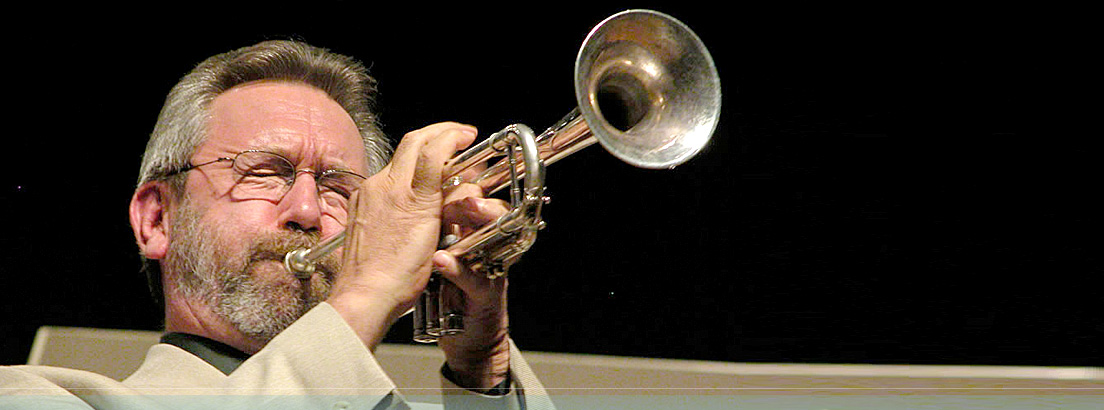
What do you mostly work on when at home practicing?
I wouldn’t call it practicing but, I’ll noodle around on changes to some tunes and always play some chromatic patterns.
What kind of scales and patterns did you practiced to develop your current skills?
Chromatic scales are the key to noticeable finger flexibility. What little practicing I did when I was young was a lot of chromatic scales and patterns. I would practice chromatic scales instead of the regular scales. With the chromatic scales you get your fingers on every note instead of skipping over some notes with the regular scales. What finger flexibility I have today I attest to the chromatic scale practice.
When you are improvising are you thinking about scales or are you simply playing melodies and ideas that are playing in your head?
We’re all at the mercy of our licks. I try to use my licks as stepping stones to get to a place where I can play something new and different. So yeah, I guess melodies playing in my head.
When soloing, do you have the chord changes memorized or do you simply have an idea of shapes and colors of the tune?
Another way of saying “having the chord changes memorized” would be “knowing the tune”. There are two ways of playing jazz.
- (natural jazz) is playing with your eyes closed which would mean that you “know the tune”
- (mechanical jazz) is playing with your eyes open and reading changes which would mean that you don’t know the tune.
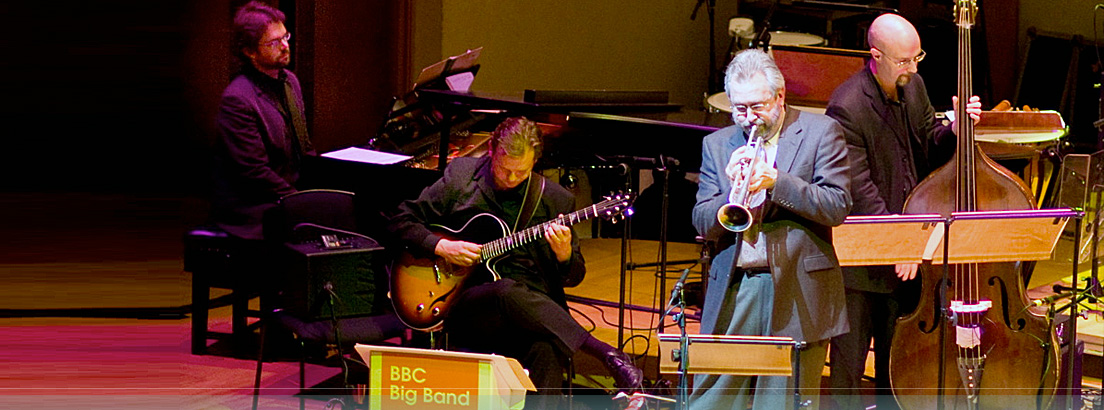
When recording, do you go for the first solo or do you do a few takes of the solo until you are happy with the result?
Both. I’ll have an idea and if I splatter a couple of notes I’ll go back and still play that same original idea.
Are you normally not really concerned with the actual chord changes?
I play “inside” so yes I’m concerned with the chord changes. Once you play the melody we’ve done our duty to the composer and now it’s the changes that we’re playing not the “tune.”
How did you develop your very unique improvisational voice?
I wanted to play like Don Fagerquist and couldn’t but it influenced me to find myself.
Has your style and approach to improvisation changed over the years?
I’m sure… Hopefully we’re all getting better as we go. Like I tell people, it takes time to get hip.
Do you write some ideas for the solo before heading to the studio?
No. Never.
Do you prefer to play with your own band or with other groups?
I guess my own band but, I like playing with good players whether it’s my band or anyone else’s.
Do you approach your playing any different if you are playing with your band as opposed to as a soloist in somebody else’s group?
It shouldn’t make a difference but playing with someone else’s band relieves you of the responsibility of the business side of the gig so theoretically your mind has less unnecessary thoughts.
How much time and effort do you put into composing?
I’ve been a tunesmith my whole life. I still spend a lot of time writing or trying to write.
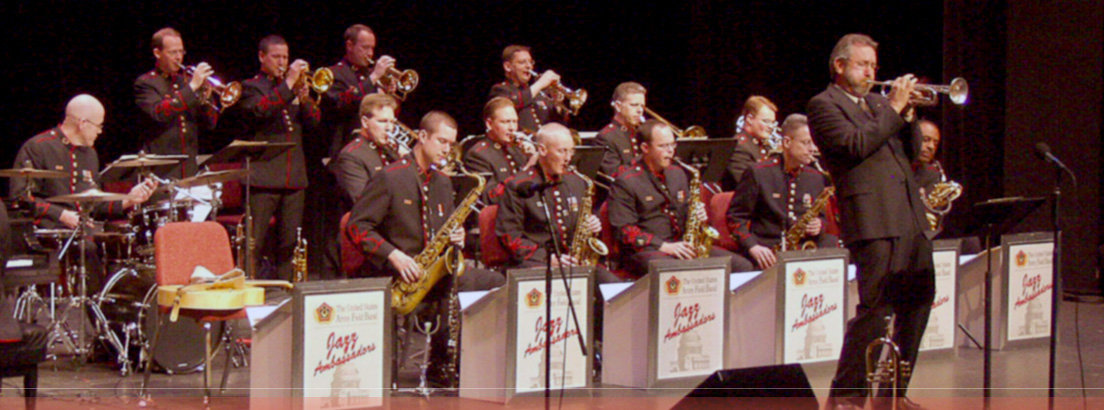
Do you have a formula you follow when working on new compositions?
You hear a starting melodic theme and hopefully you can develop it into a nice and complete song.
When composing do you work out a progression then a melody or does the melody come first?
Both. Hearing a melody then putting changes to it. Or… develop a set of changes that flow and then put a melody to them.
Do you do the arrangements for your own compositions or do you delegate that to someone else?
I’ve done some arranging but don’t call myself an arranger. Remember, I never studied music except through the school of hard knocks.
Of all your compositions, is there one that is your all time favorite?
I guess… Autumn Sojourn.
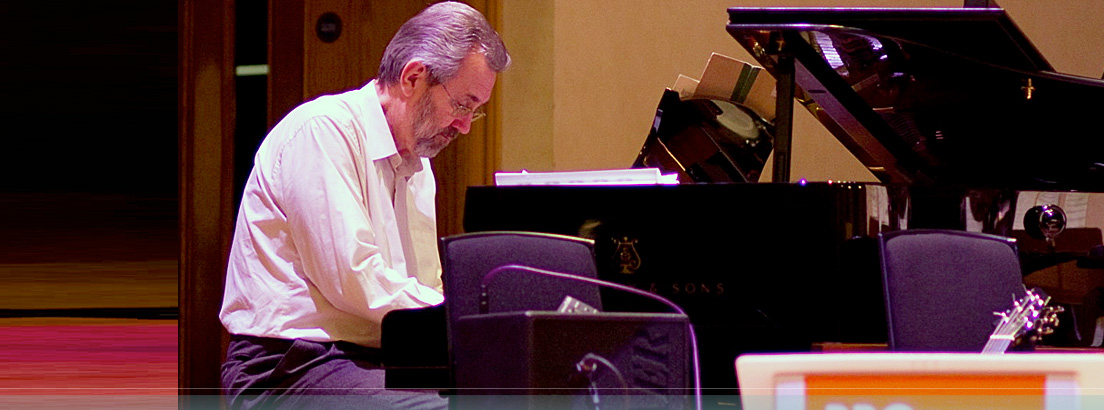
Who do you listen to for inspiration?
Mostly, Clare Fischer, Bob Brookmeyer, Kenny Dorham, Freddie & Dizzy.
What equipment are you currently playing?
Playing on my old Benge that I bought used in 1968. I’m messing around with mouthpieces. On all my CDs I played a Bach 10 1/2 C.
Do you select different equipment depending on the group or what the job calls for?
Sometimes yes. I’ll use a shallow type cup for lead and my Bach for jazz.
Do you enjoy teaching or do you prefer to be out recording and playing instead?
Love it all… Love teaching.
Now that you are an established soloist, what is your biggest career challenge?
Not much. Right now I’m working on producing a series of CDs with Summit Records called “New Jazz Standards.” Sam Most recorded Vol.1 Scott Whitfield Vol.2 Larry Koonse Vol.3 and Roger Kellaway Vol.4 all the tunes are from my book “New Jazz Standards” which is a compilation of over 300 of my tunes and it is available at my site carlsaunders.com.
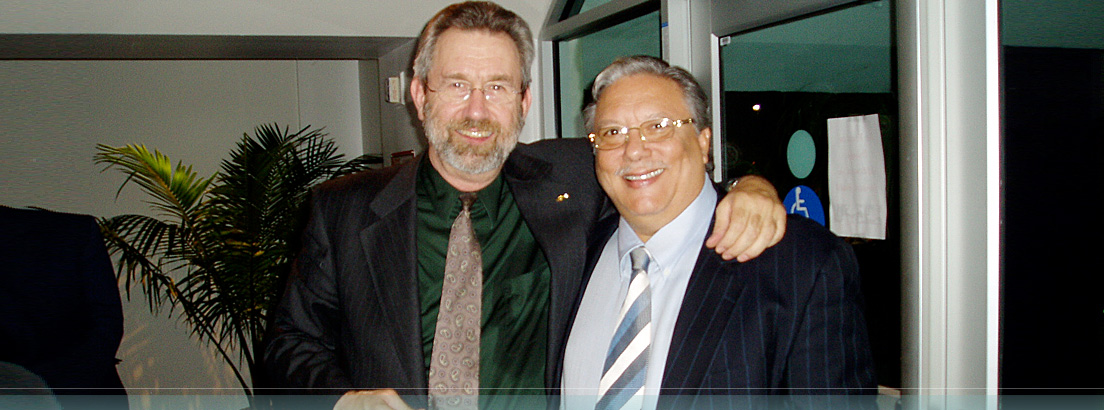
How much time and effort did it take you to complete your latest album?
Well, there is the actual recording the material, then mixing and mastering, finding someone to write the liner notes, decide on the cover, packaging etc.. All these things take time and as to the availability of he studio and people involved in the different tasks probably months.
Best advice you would give to an upcoming player?
Zero in on what you do best and do it.
Best tip for anyone learning the art of improvisation?
Listen to the jazz that pleases your ear. Start with the blues. Singing or scatting lines or licks that you hear in your head then try to work them out on your horn. Write tunes. As music becomes your profession, keep music your hobby also. Stay on top of the beat but don’t rush.
Are you disappointed or encouraged by the playing quality/level of the new wave of young jazz trumpeters?
I really don’t hear much that impresses me. But then, I could be un aware of a lot of players. Playing trumpet for a living entails playing shows, recordings, dance gigs, legit etc.
Jazz is kind of a side line that most trumpet players don’t do strictly for a living. It’s a passion and a dedication and something that you have to be natural at so only a small percentage of all trumpet players play or are even interested in jazz.
I’ll leave you with this… “Use the Least Amount of Air to Get the Job Done to it’s Fullest”
My Foolish Heart With The Stan Kenton Alumni Band
Notable Albums As A Leader

